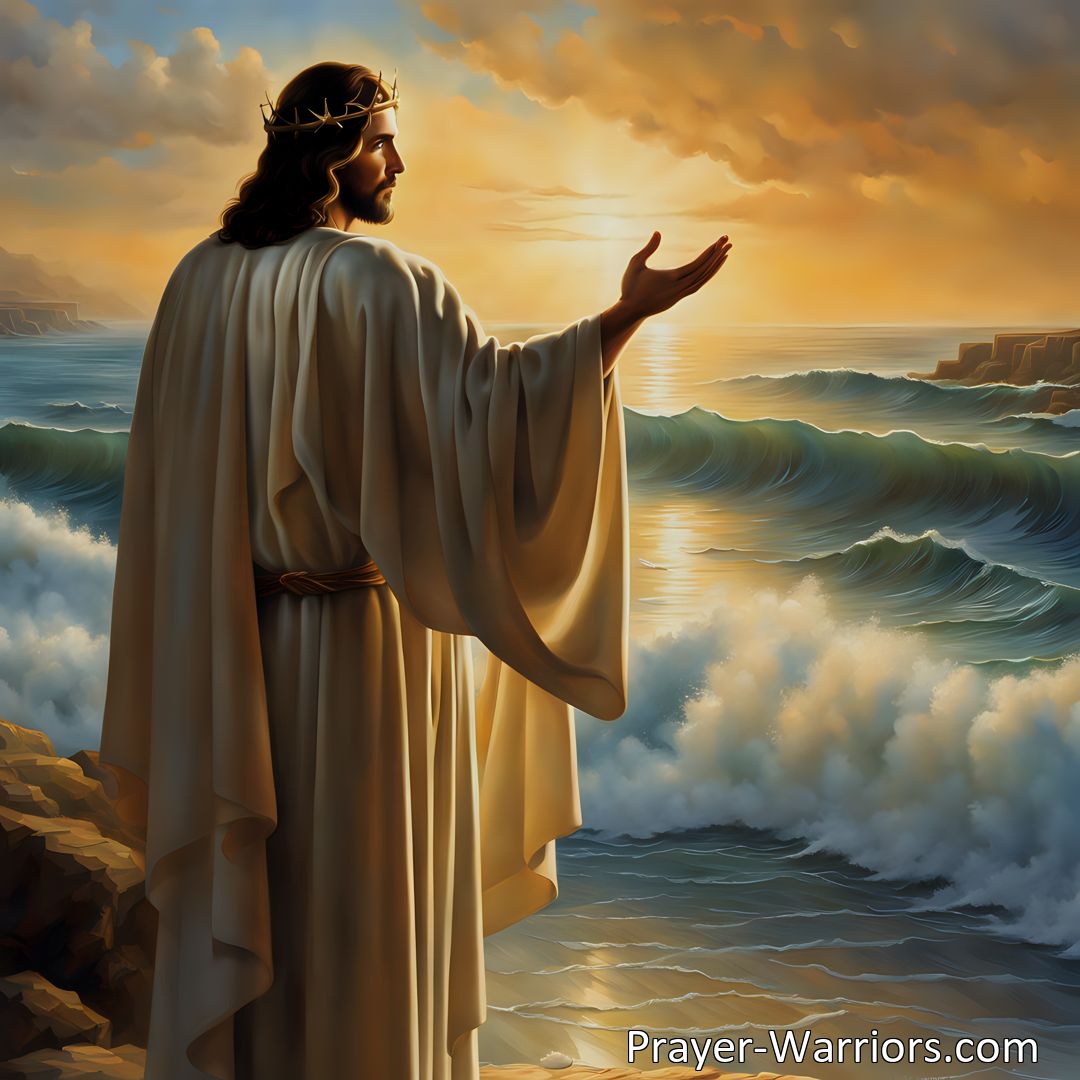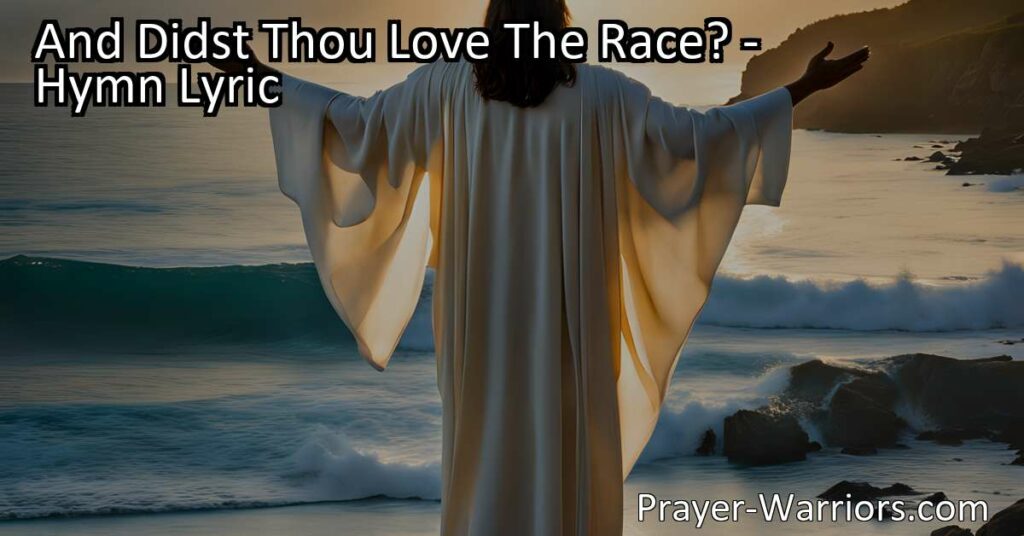And Didst Thou Love The Race? – Hymn Lyric
“And Didst Thou Love The Race?” is a thought-provoking hymn that explores the profound love of God for humanity. It reflects on the divine nature of Jesus, who willingly took on the struggles of mankind and pleads for us by the marvelous sea. The hymn calls us to contemplate the depth of God’s love and to welcome Jesus into our hearts.
Table of Contents
And Didst Thou Love The Race? – Hymn Lyric
And didst
Thou love
the race
that loved
not Thee?
And didst
Thou take
to Heaven
a human
brow?
Dost plead
with man’s
voice by
the marvelous
sea?
Art Thou
his Kinsman
now?
O God,
O Kinsman
loved, but
not enough,
O Man,
with eyes
majestic
after death,
Whose feet
have toiled
along
our pathways
rough,
Whose lips
drawn human
breath!
By that
one likeness
which is
ours and Thine,
By that
one nature
which doth
hold us kin,
By that
high Heaven
where,
sinless,
Thou dost
shine
To draw
us sinners
in;
By Thy
last silence
in the
judgment hall,
By long
foreknowledge
of the deadly
tree,
By darkness,
by the wormwood
and the gall,
I pray
Thee visit
me.
Come, lest
this heart
should, cold
and cast
away,
Die ere
the Guest
adored
she entertain
Lest eyes
which never
saw Thine
earthly day
Should miss
Thy heavenly
reign.
Meaning of And Didst Thou Love The Race?
And Didst Thou Love The Race?
In this beautiful hymn, the author ponders the incredible love that God has for humanity, despite the fact that we often fail to reciprocate that love. The hymn reflects on the divine nature of Jesus, who took on human form and willingly faced the struggles and trials of humanity. It expresses wonder at the fact that Jesus, as both God and man, pleads for us by the marvelous sea and has become our Kinsman.
The hymn begins with a series of rhetorical questions that emphasize the depth of God’s love for us. “And didst Thou love the race that loved not Thee? And didst Thou take to Heaven a human brow?” These questions highlight the paradoxical nature of God’s love. Despite our shortcomings and failures, God still loves us unconditionally and desires to bring us to Himself.
The author addresses God directly, acknowledging His love but also recognizing that it may not be fully understood or appreciated by humanity. It is a love that surpasses our limited understanding. “O God, O Kinsman loved, but not enough… O Man, with eyes majestic after death.”
The hymn acknowledges the earthly journey of Jesus, the Son of God, whose feet have trodden our rough pathways and whose lips have breathed the air that we do. It is a poignant reminder of the humanity of Jesus, who experienced life’s struggles just like we do.
The author then draws our attention to the shared likeness and nature between us and Jesus. We are linked to Him through our common humanity and His divine nature. It is through this connection that He extends His invitation to draw us sinners into the sinless Heaven where He now shines.
The hymn also brings to mind the sacrifice that Jesus made for us. It mentions the last silence in the judgment hall, referring to the trial and crucifixion of Jesus. It reminds us of His foreknowledge of the deadly tree, symbolizing the cross on which He was crucified. The references to darkness, wormwood, and gall evoke the bitter and agonizing experience that Jesus went through to redeem us.
In the final stanza, the author makes a heartfelt plea for Jesus to visit his heart. He longs for the presence of the divine Guest who is adored and desires to entertain Him. The concern is expressed that without this divine presence, the heart may grow cold and be cast away. There is a fear that if the eyes have never witnessed Jesus’ earthly life, they may miss out on experiencing His heavenly reign.
In conclusion, this beautiful hymn reflects on the immense love that God has for humanity. It highlights the paradoxical nature of His love, which extends to us despite our flaws and failures. Through the person of Jesus, who took on human form and shared in our struggles, God pleads for us and calls us to Himself. The hymn invites us to contemplate the depth of God’s love and to respond by welcoming Jesus into our hearts.
I hope this hymn inspired image brings you hope and peace. Share it with someone who needs it today!



